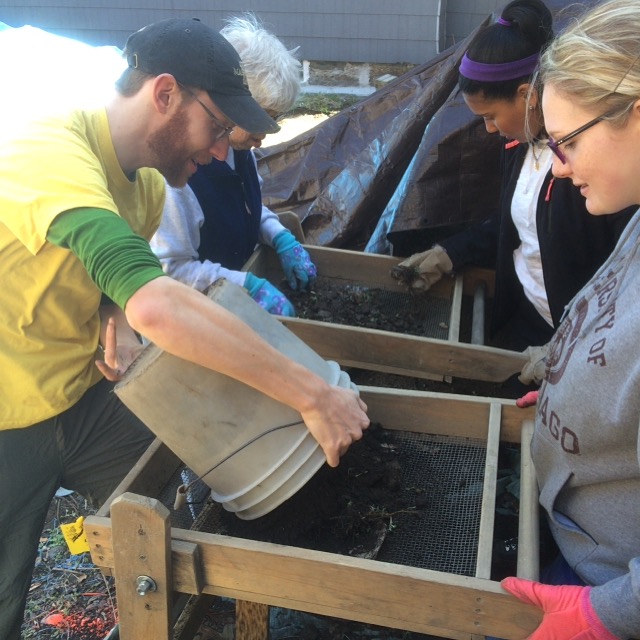Malcolm X House
Archaeologists conducted a survey at the landmark-designated Malcolm X- Ella Little-Collins House. The house is located at 72 Dale Street in Roxbury and is on the National Register of Historic Places.
The site
The Malcolm X House was built in 1874 on the former country estate of Abijah Seaver.
In the 1700s, the land was part of a large wealthy estate. In 1844, Dale Street was laid out as the Seaver estate was divided up for development. During the late 1800s, a series of Victorian homes were constructed along Dale Street. The house was built sometime between 1845 and 1866, and for several decades, it was lived in by English and Irish immigrants. These immigrants moved to Roxbury for work near the neighborhood's mills, breweries, and factories.
In 1941, Ella Little-Collins purchased the home for her family. That same year, Malcom Little, Ella's brother, moved in with her. He lived there during his formative teenage years. After Malcolm's imprisonment for burglary charges, he and his family converted to the Nation of Islam. In 1952, Malcolm Little changed his name to Malcolm X.
Malcolm X would become a major leader in the civil rights movement and Nation of Islam. For the rest of his life, he made frequent visits to his sister's Dale Street home. He was assassinated on February 21, 1965, at the age of 39. Ella passed away in 1996. The house has remained within the family since its purchase in 1941. In 1998, the Malcolm X-Ella Little-Collins house was designated a City landmark by the Boston Landmarks Commission.
The dig
- Ground Penetrating Radar (GPR)
- small shovel test pits, and
- larger open excavations throughout the property.
In 2016, archaeologists and volunteers from the City Archaeology program and Fiske Center for Archaeological Research conducted a survey. The goal was to determine if there were important artifacts and features from the home's history left behind.
Rodnell Collins, current owner of the home, Malcom X's nephew, and son of Ella Little-Collins, joined the dig. He took park in artifact washing (see photo of Rodnell washing artifacts below) and helped with research. Mr. Collins also organized Roxbury community members to visit and join the digging, including dozens of local school children.
The results
Archaeologists recovered 18,207 artifacts during this relatively small-scale survey, a much higher number than was expected.
- 1940s-1960s artifacts from Malcolm X, Ella Little-Collins, and their family
- late 1800s artifacts from the Irish immigrant renters of the home
- thousands of deeply-buried artifacts from the 1700s from Abijah Seaver's family, and
- a small number of Massachusetts Native American stone tool pieces dating to the time before Europeans came to Boston.
Documents
Archaeological Report
Complete Archaeological report for Malcolm X - Ella Little-Collins House
Artifact catalog
Complete catalog (spreadsheet) of artifacts found at Malcolm X- Ella Little-Collins House
Artifact images
Searchable Omeka database of artifact images and catalog data
Field notes
Field notes and drawings from Malcolm X House survey
Field photos
Photos of excavation units and field activities
Rodnell Collins oral history artifact catalog
Rodnell Collins describing artifacts from his family recovered from Malcolm X House site




